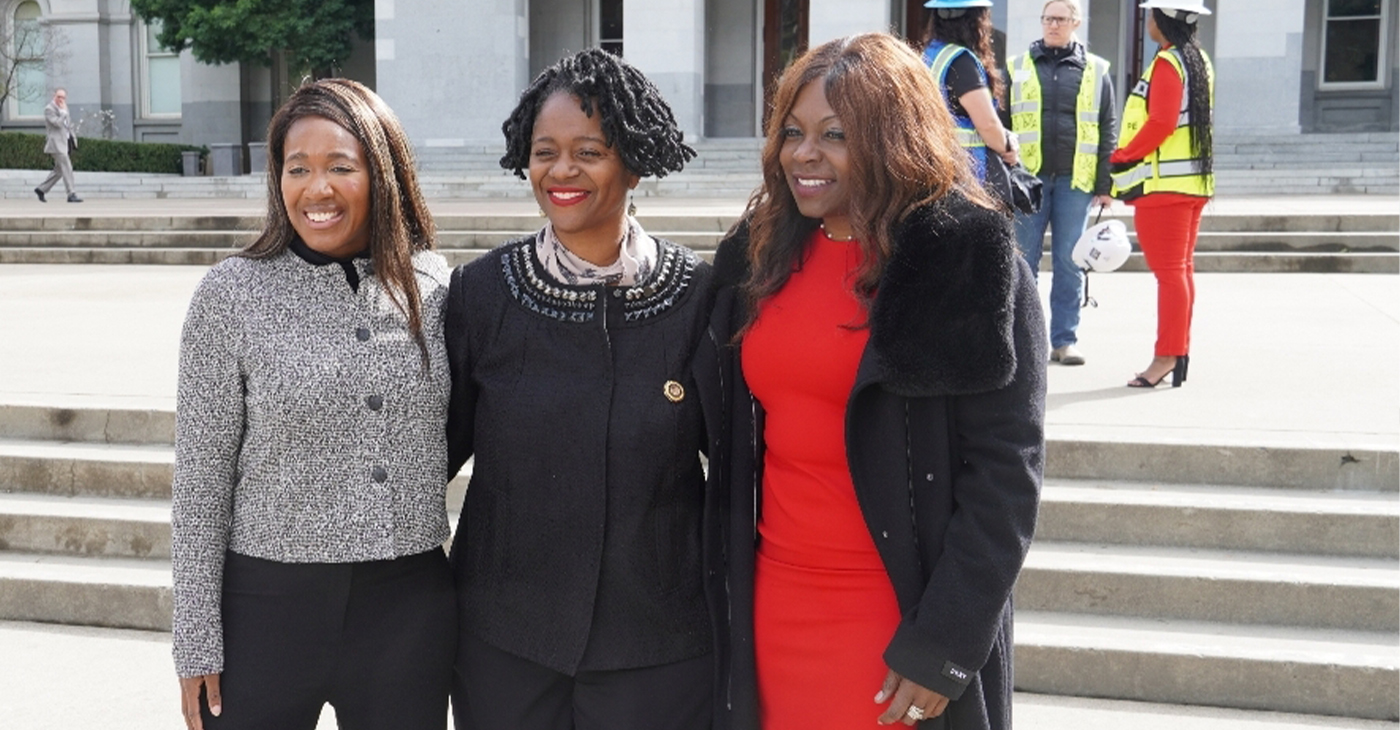National
Blacks Bear Brunt of School Suspensions
By Jazelle Hunt
Washington Correspondent
WASHINGTON (NNPA) –According to a report released last week, 3.5 million K-12 public school students were suspended in the 2011-2012 school year – enough to fill every stadium seat in Super Bowl I through Super Bowl XLV.
And Black children are bearing the brunt of these excessive suspensions.
The report, “Are We Closing the School Discipline Gap?,” states, “Demographically, the seven highest-suspending districts all had majority Black enrollment, although the range was from 26 percent to 99 percent Black. Only one [of the seven highest], Taylor, Florida, was majority White, at 67 percent.”
The research, conducted by the Civil Rights Project at UCLA, offers a detailed analysis of public school suspension over the last few years, with the data broken down by elementary and high school, district and state, race and gender, and language and learning ability.
In the past two to five years, schools have made a concerted effort to avoid out-of-school suspensions for elementary schoolchildren, though it still happens. The reversal is not happening as fast at the high school level.
Black high school boys are suspended at the highest rate of all groups – 28.4 percent, compared to the 10 percent national average. Black high school girls follow at 17.9 percent (Native American and Latino boys come next, with 15 and 14 percent, respectively). Between 2002 and 2006, the suspension rate for Black girls increased at the highest rate of all groups.
For Black students with disabilities, the rates are even higher – 33.8 percent for Black high school boys, and 22.5 percent for girls – “shocking” enough to suggest that these students’ civil rights are being “unlawfully violated.”
Out-of-school suspensions also feed the racial and economic achievement gap, and have far-reaching effects on future outcomes.
“…higher suspension rates are closely correlated with higher dropout and delinquency rates, and they have tremendous economic costs for the suspended students, as well as for society as a whole,” the report explains.
“Therefore, the large racial/ethnic disparities in suspensions that we document in this report likely will have an adverse and disparate impact on the academic achievement and life outcomes of millions of historically disadvantaged children.”
The starkness of the data has lead schools, administrators, teachers, and parents to believe that Black children must be earning these suspension rates. But an examination of the data at the state and district level shows does not support this belief.
For starters, Black students are enrolled in almost equal numbers in both high-suspending and lower-suspending states. Since 2009, suspensions in the 35 school districts with the lowest suspension rates have continued to decline.
“In other words, readers would be wrong to assume that something about the behavior of Black elementary students requires greater use of suspension,” the report says. “To the contrary, these data, along with several studies that tracked behavior ratings of students as well as disciplinary outcomes suggest that Black students are punished more harshly and more often for subjective minor offenses. Instead, researchers conclude that school policies and practices more than differences in behaviors, predict higher suspension rates.”
In addition to a race and gender analysis of the suspension data, the researchers examined and ranked the data, district by district and state by state. Florida suspends its students more than any other state, both at the elementary and high school levels. Other K-12 high suspending states with high suspension rates in both elementary and high schools were Mississippi, Delaware, Alabama, and South Carolina.
Notably, Missouri is home to three of the highest-suspending school districts in the nation and has the highest Black-White discipline gap. Michael Brown, the unarmed Black teenager killed by a White policeman in Ferguson, Mo., was a graduate of Missouri’s Normandy School District, where students are suspended at a 48.4 percent rate.
The worst districts for Black students in particular are Oklahoma City in Oklahoma, Cahokia CUSD 187 in Illinois, and Greenville Public Schools in Mississippi – where Black kids are suspended at 64, 63, and 59 percent, respectively. In Oklahoma City, that number is 75 percent for Black boys; in Cahokia, it’s 58 percent for Black girls.
There were also districts that have done well in reducing out-of-school punishments, especially among Black children, including: Edgewood ISD in Texas, Richmond County in Georgia, and Lawton County, Oklahoma.
States with large Black populations that have improved over the last few years include Maryland, Pennsylvania, and California.
While excessive school suspension remains a significant barrier to equitable, effective public education for all children – so much so that the Justice Department issued civil rights-based discipline guidelines to schools last year – strides are being made.
The report states, “Although we anticipate that newer data will reveal substantial improvements in some states and districts, there is no question that much more reform is needed if we are to be successful in closing the school discipline gap.”
###
Activism
Oakland Post: Week of March 28 – April 1, 2025
The printed Weekly Edition of the Oakland Post: Week of March 28 – April 1, 2025

To enlarge your view of this issue, use the slider, magnifying glass icon or full page icon in the lower right corner of the browser window.
Activism
Sen. Lola Smallwood-Cuevas Honors California Women in Construction with State Proclamation, Policy Ideas
“Women play an important role in building our communities, yet they remain vastly underrepresented in the construction industry,” Smallwood-Cuevas stated. “This resolution not only recognizes their incredible contributions but also the need to break barriers — like gender discrimination.

By Antonio Ray Harvey, California Black Media
To honor Women in Construction Week, Sen. Lola Smallwood-Cuevas (D-Los Angeles), a member of the California Legislative Black Caucus (CLBC), introduced Senate Concurrent Resolution (SCR) 30 in the State Legislature on March 6. This resolution pays tribute to women and highlights their contributions to the building industry.
The measure designates March 2, 2025, to March 8, 2025, as Women in Construction Week in California. It passed 34-0 on the Senate floor.
“Women play an important role in building our communities, yet they remain vastly underrepresented in the construction industry,” Smallwood-Cuevas stated. “This resolution not only recognizes their incredible contributions but also the need to break barriers — like gender discrimination.
Authored by Assemblymember Liz Ortega (D-San Leandro), another bill, Assembly Concurrent Resolution (ACR) 28, also recognized women in the construction industry.
The resolution advanced out of the Assembly Committee on Rules with a 10-0 vote.
The weeklong event coincides with the National Association of Women In Construction (NAWIC) celebration that started in 1998 and has grown and expanded every year since.
The same week in front of the State Capitol, Smallwood, Lt. Gov. Eleni Kounalakis, Assemblymember Josh Hoover (R-Folsom), and Assemblymember Maggie Krell (D-Sacramento), attended a brunch organized by a local chapter of NAWIC.
Two of the guest speakers were Dr. Giovanna Brasfield, CEO of Los Angeles-based Brasfield and Associates, and Jennifer Todd, President and Founder of LMS General Contractors.
Todd is the youngest Black woman to receive a California’s Contractors State License Board (A) General Engineering license. An advocate for women of different backgrounds, Todd she said she has been a woman in construction for the last 16 years despite going through some trying times.
A graduate of Arizona State University’s’ Sandra Day O’Connor College of Law, in 2009 Todd created an apprenticeship training program, A Greener Tomorrow, designed toward the advancement of unemployed and underemployed people of color.
“I always say, ‘I love an industry that doesn’t love me back,’” Todd said. “Being young, female and minority, I am often in spaces where people don’t look like me, they don’t reflect my values, they don’t reflect my experiences, and I so persevere in spite of it all.”
According to the U.S. Bureau of Labor Statistics, only 11.2% of the construction workforce across the country are female. Overall, 87.3% of the female construction workers are White, 35.1% are Latinas, 2.1% are Asians, and 6.5% are Black women, the report reveals.
The National Association of Home Builders reported that as of 2022, the states with the largest number of women working in construction were Texas (137,000), California (135,000) and Florida (119,000). The three states alone represent 30% of all women employed in the industry.
Sen. Susan Rubio (D-Baldwin Park) and the California Legislative Women’s Caucus supported Smallwood-Cuevas’ SCR 30 and requested that more energy be poured into bringing awareness to the severe gender gap in the construction field.
“The construction trade are a proven path to a solid career. and we have an ongoing shortage, and this is a time for us to do better breaking down the barriers to help the people get into this sector,” Rubio said.
Activism
Report Offers Policies, Ideas to Improve the Workplace Experiences of Black Women in California
The “Invisible Labor, Visible Struggles: The Intersection of Race, Gender, and Workplace Equity for Black Women in California” report by the California Black Women’s Collective Empowerment Institute (CBWCEI), unveiled the findings of a December 2024 survey of 452 employed Black women across the Golden State. Three-fifths of the participants said they experienced racism or discrimination last year and 57% of the unfair treatment was related to incidents at work.

By McKenzie Jackson, California Black Media
Backed by data, a report released last month details the numerous hurdles Black women in the Golden State must overcome to effectively contribute and succeed in the workplace.
The “Invisible Labor, Visible Struggles: The Intersection of Race, Gender, and Workplace Equity for Black Women in California” report by the California Black Women’s Collective Empowerment Institute (CBWCEI), unveiled the findings of a December 2024 survey of 452 employed Black women across the Golden State. Three-fifths of the participants said they experienced racism or discrimination last year and 57% of the unfair treatment was related to incidents at work.
CBWCEI President and CEO Kellie Todd Griffin said Black women have been the backbone of communities, industries, and movements but are still overlooked, underpaid, and undervalued at work.
“The data is clear,” she explained. “Systemic racism and sexism are not just historical injustices. They are active forces shaping the workplace experiences of Black women today. This report is a call to action. it demands intentional polices, corporate accountability, and systemic changes.”
The 16-page study, conducted by the public opinion research and strategic consulting firm EVITARUS, showcases the lived workplace experiences of Black women, many who say they are stuck in the crosshairs of discrimination based on gender and race which hinders their work opportunities, advancements, and aspirations, according to the report’s authors, Todd Griffin and CBWCEI researcher Dr. Sharon Uche.
“We wanted to look at how Black women are experiencing the workplace where there are systematic barriers,” Todd Griffin told the media during a press conference co-hosted by Ethnic Media Services and California Black Media. “This report is focused on the invisible labor struggles of Black women throughout California.”
The aspects of the workplace most important to Black women, according to those surveyed, are salary or wage, benefits, and job security.
However, only 21% of the survey’s respondents felt they had strong chances for career advancement into the executive or senior leadership ranks in California’s job market; 49% felt passed over, excluded from, or marginalized at work; and 48% felt their accomplishments at work were undervalued. Thirty-eight percent said they had been thought of as the stereotypical “angry Black woman” at work, and 42% said workplace racism or discrimination effected their physical or mental health.
“These sentiments play a factor in contributing to a workplace that is unsafe and not equitable for Black women in California,” the report reads.
Most Black women said providing for their families and personal fulfillment motivated them to show up to work daily, while 38% said they were dissatisfied in their current job with salary, supervisors, and work environment being the top sources of their discontent.
When asked if they agree or disagree with a statement about their workplace 58% of Black women said they feel supported at work, while 52% said their contributions are acknowledged. Forty-nine percent said they felt empowered.
Uche said Black women are paid $54,000 annually on average — including Black single mothers, who averaged $50,000 — while White men earn an average of $90,000 each year.
“More than half of Black families in California are led by single Black women,” said Uche, who added that the pay gap between Black women and White men isn’t forecasted to close until 2121.
-

 #NNPA BlackPress4 weeks ago
#NNPA BlackPress4 weeks agoTarget Takes a Hit: $12.4 Billion Wiped Out as Boycotts Grow
-

 Activism4 weeks ago
Activism4 weeks agoUndocumented Workers Are Struggling to Feed Themselves. Slashed Budgets and New Immigration Policies Bring Fresh Challenges
-

 #NNPA BlackPress4 weeks ago
#NNPA BlackPress4 weeks agoBREAKING Groundbreaking Singer Angie Stone Dies in Car Accident at 63
-

 Activism4 weeks ago
Activism4 weeks agoOakland Post: Week of February 26 – March 4, 2025
-

 #NNPA BlackPress4 weeks ago
#NNPA BlackPress4 weeks agoNAACP Legend and Freedom Fighter Hazel Dukes Passes
-

 Arts and Culture4 weeks ago
Arts and Culture4 weeks agoBeverly Lorraine Greene: A Pioneering Architect and Symbol of Possibility and Progress
-

 #NNPA BlackPress4 weeks ago
#NNPA BlackPress4 weeks agoTrump Kicks the Ukrainian President Out of the White House
-

 #NNPA BlackPress4 weeks ago
#NNPA BlackPress4 weeks agoApple Shareholders Reject Effort to Dismantle DEI Initiatives, Approve $500 Billion U.S. Investment Plan

























































